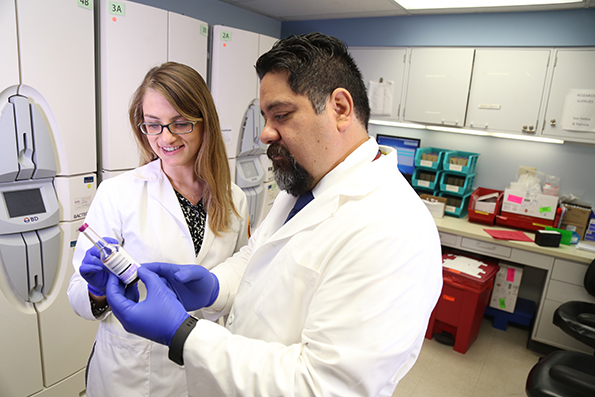From everyday illnesses to pandemics, diagnoses are crucial to safeguarding every person’s well-being. Pathologists make the life-changing diagnoses that lead to treatments occurring every day.
Have you ever wondered how samples of body tissue or fluids are analyzed to help determine a diagnosis and inform treatment options? Pathologists – often referred to as “medical detectives” – lead the laboratories that examine samples and specimens to discover the root causes of a patient’s illness or chronic condition.

Pathologists can also sub-specialize in different areas, such as gastroenterology, gynecologic pathology, lung and breast cancers and more. For every subspecialty in medicine or surgery, there is a pathologist counterpart, helping to make the correct diagnosis and guide the care of every patient.
Find Out How
Working with patients' health care teams, pathologists analyze samples using advanced equipment and techniques to determine diagnosis, inform treatment options, decode other illnesses and offer continuous improvement in communities.
Discover More
Did you know pathologists’ work touches every aspect of the health care continuum? Find out seven ways that pathologists support better health care outcomes, so people across the U.S. can live healthier lives.
Download This ResourcePatients are healthier and more empowered because of the hard work of pathologists.
The CAP promotes the essential role of pathologists in our nation's health care system, while also advocating on behalf of our patients to protect access to pathology services at the federal and state levels. Patients can count on us to deliver the message: protect access.
Learn more about the CAP's public policy agenda and latest news impacting pathology.
Learn More Today